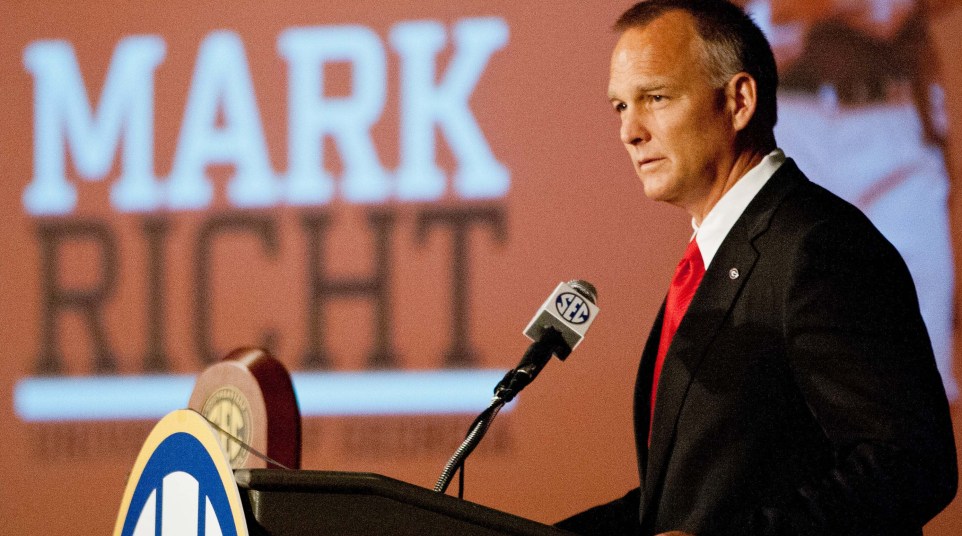Georgia changes recruiting philosophy with positive results
Here we sit in mid-April, with spring games still to be played, and already many FBS schools have secured double-digit commitments for the 2016 recruiting class.
Georgia, along with LSU and Ole Miss, is one of three SEC schools with at least five pledges from players rated at four stars or better, according to the 247Sports Composite rankings.
The Bulldogs consistently rank in the Top 10 in recruiting, occasionally ascending inside the Top 5. But this year’s class already is taking shape some 9 1/2 months before National Signing Day.
That’s in part because UGA is extending scholarship offers and closing on commitments earlier than ever, part of a national trend rolling back the dates on prospect’s decisions until well before they’ve finished their junior years of high school.
RELATED: Greg Sankey, SEC takes cautious approach on early signing date
The outrage over the occasional eighth grader “offered a scholarship” is intriguing. But for the most part, major recruiting classes used to gel in the fall, as big-time prep football players wrap up their final high school seasons. There’s talk of instituting an early signing period in December in conjunction with the junior college date, but players (and schools) are being forced to make decisions much earlier in the process.
“You have to jump out there and really be a year ahead in the evaluation process, (than) the way used to be,” UGA recruiting coordinator Bryan McClendon said, according to the Macon Telegraph. “(Once) you get those guys past the evaluation (process), there’s no reason to hold back. But in doing that, you’ve got to be a lot more sure on a guy, as far as what you think he can be, and what he can be down the road.”
One of the biggest differences in philosophy is that instead of casting a wide net, the Bulldogs now are identifying and targeting a smaller number of priority recruits. In doing so, the team tries to accommodate the schedule and availability of those prep players. For instance, UGA has devalued its traditional “junior day,” instead inviting many of the top targets to come visit the campus and watch practice during their spring breaks.
“What was a typical junior day, targeting everybody for that day, there’s some value in that and we still do that, but we’ve really changed our philosophy a little bit to say, ‘Just target the guys we like the most,’ and say, ‘You come when it fits your schedule, we’ll make it work,'” coach Mark Richt said, according to the Athens Banner-Herald.
Richt added he saw more high school recruits at a recent practice than he did at the team’s official junior day.
Eason, of course, is from Lake Stevens, Wash., quite a journey from Athens, Ga., for a high school junior. But, much like other SEC schools, many of the early targets for Georgia come from The Peach State. Seven of the team’s 10 total commitments for ’16 are from Georgia.
It’s unclear exactly where this is headed — the SEC is expected to emerge from conference-wide meetings next month in Destin, Fla., with a clear position on a potential early signing period — but UGA is doing a good job of trying to evolve along with the sport. As the landscape shifts, the Bulldogs also were the first team to land a recruit (Roquan Smith) who refused to sign a Letter of Intent.
Unless there’s a dramatic rule change, though, even schools who are being aggressive, stacking up paid support staff to handle recruiting logistics and working ahead, early commitments still require many months of continual recruitment.
“You’ve just gotta keep recruiting them all like they’re not committed,” McClendon said.

